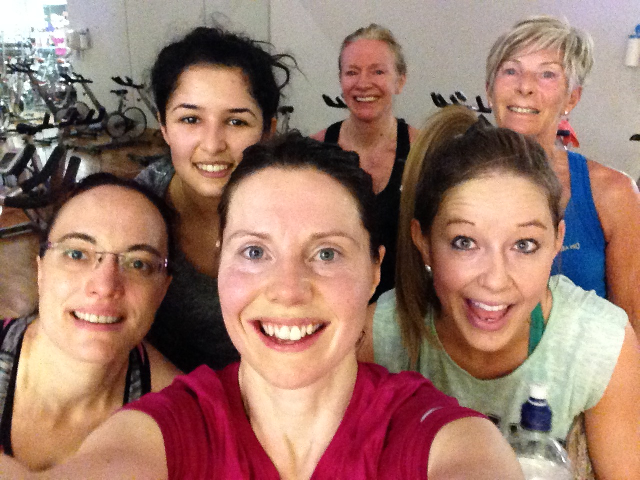Working with what you’ve got

20 people regularly rock up at my local leisure centre at 0630 on Mondays and Wednesdays to pedal as fast as they can and go nowhere (‘spinning’ to the uninitiated). It’s brilliant and we’re bonkers and on the first Monday after Christmas when an instructor failed to show I watched how people reacted and thought there was a blog post in it.
Firstly, there was no obvious crossness from anyone. Too early? Relief? Christmas good-feeling still in play? Whatever the reason that’s a great response because getting cross gets in the way of getting to a solution (in my head my children are choking on shrieks of incredulity at me writing this).
Only one person volunteered to go and see whether an instructor was booked and running late. This allowed the rest of us to carry on spinning our wheels and ramping up heart rates whilst we waited. Thank you Jane for your generosity. Quickly taking the lead when things go wrong at work, even in a small way, signals to others that you are decisive, proactive, collaborative and efficient.
Two or three people left before knowing whether the class was going ahead. Perhaps they didn’t want to waste another minute of the window they had available for exercise and went to the gym, the pool or out for a run? A great response if you’re pressed for time and I salute your decisiveness.
Whilst Jane (our proactive search party) was away I suggested a joint effort of turn-taking giving instructions from the comfort (!?) of our own saddles. This got nods of approval and Jane returned suggesting the same thing. “Great minds.” At this point five more people left. I assume they’d been waiting for a definite answer and when it wasn’t the right one, they were off. Waiting until all the facts are in, or giving yourself a set amount of time to gather them, before commenting or making a decision is a great approach when things go Pete Tong.
Consider these two scenarios: 1) your partner books a holiday costing half your annual holiday budget without consulting you on the finer details and 2) one of your direct reports sends an incomplete press release to the media. Before opening your mouth a great question to ask yourself is, “what’s the best that could come of this?” It shifts you into a resourceful, solution-focussed state that’s much more likely to maintain the relationship with your partner or team member than if you go down the problem-focussed “what the hell?” track.
Eight of us stayed and ran it completely collaboratively with some saying it was better than the regular class. We shared names and swapped tips at the end and everyone agreed we’d made a great decision to stay and do something different. Sometimes working with what you’ve got isn’t just pragmatic, it’s better than what you thought you were going to have or were hankering for.
In my coaching work I invite coachees to reflect on a few questions between coaching sessions and one is “what went differently to what you planned or envisaged, and what did you learn?” There’s so much richness in what they write and we usually spend a few minutes in the next coaching session thinking about how they can apply this learning to pre-empt or handle future tricky situations.









